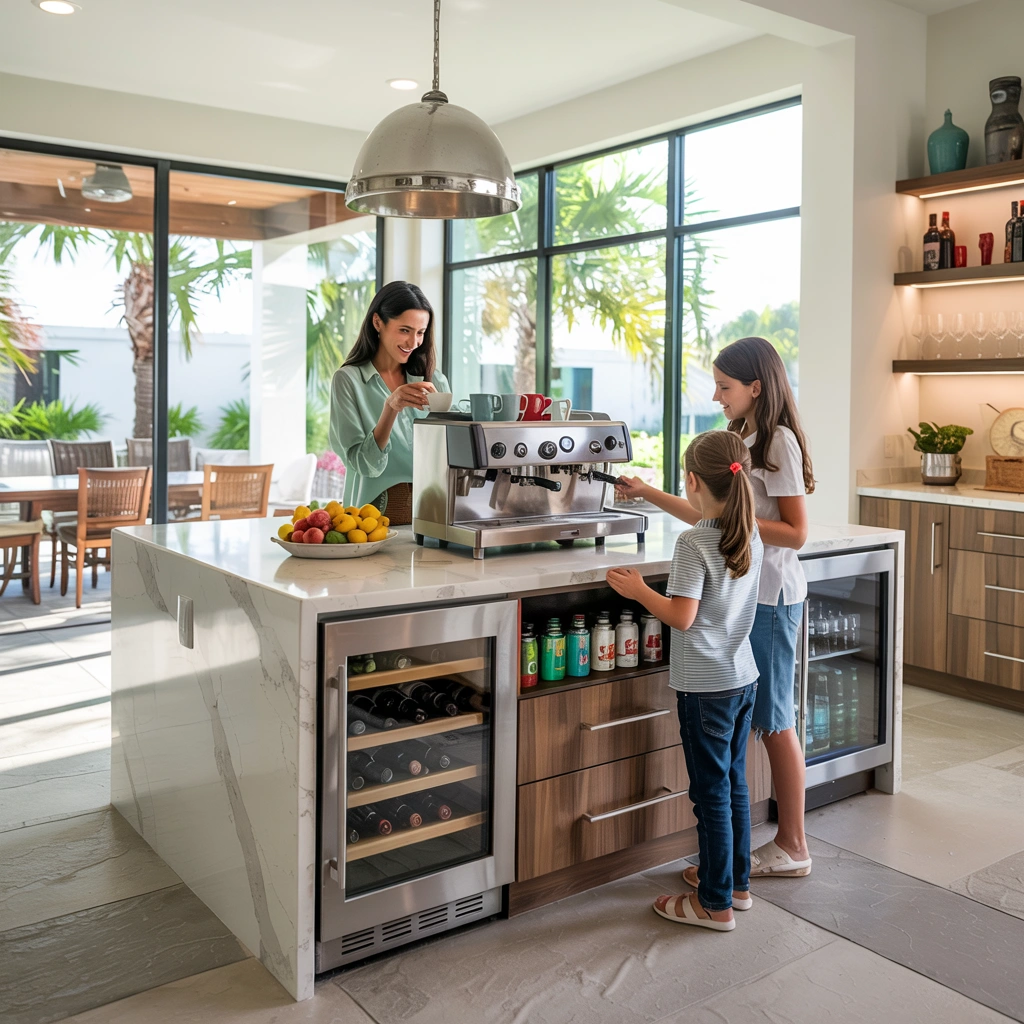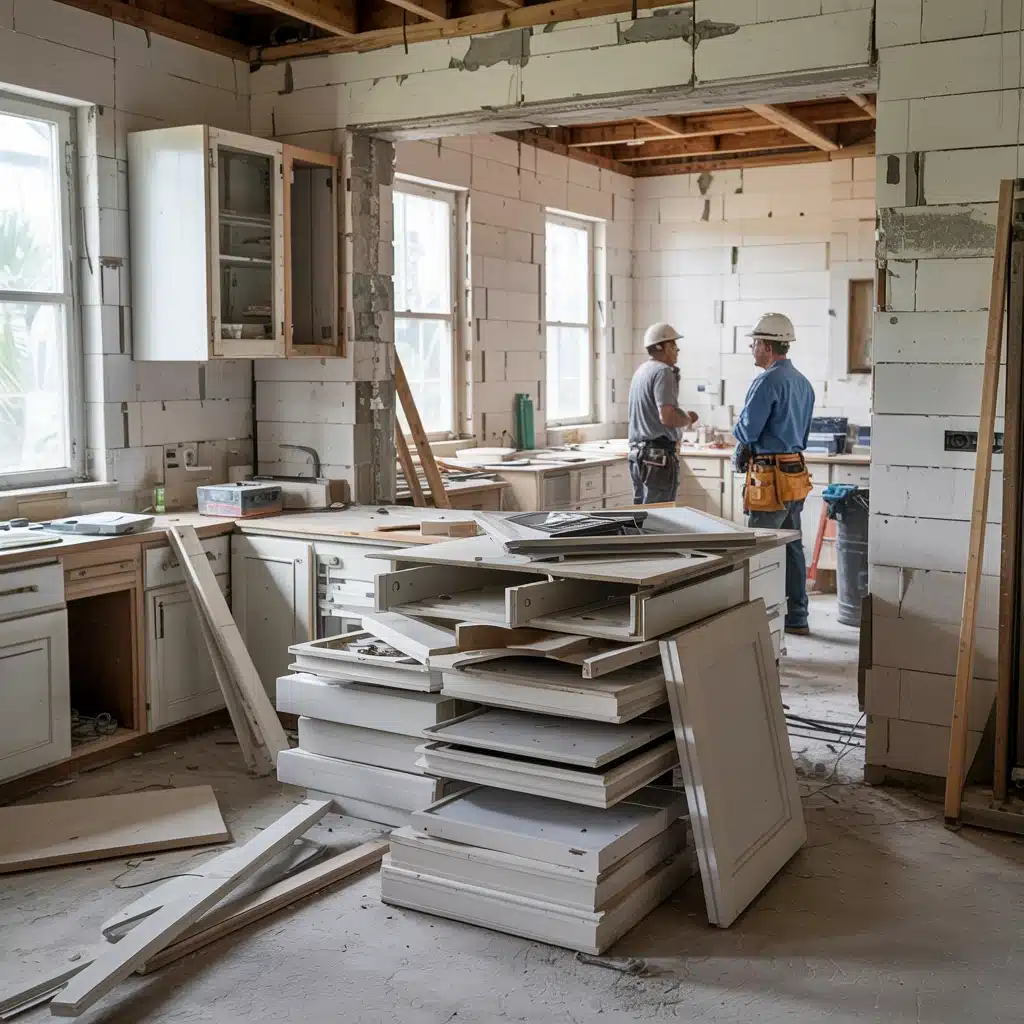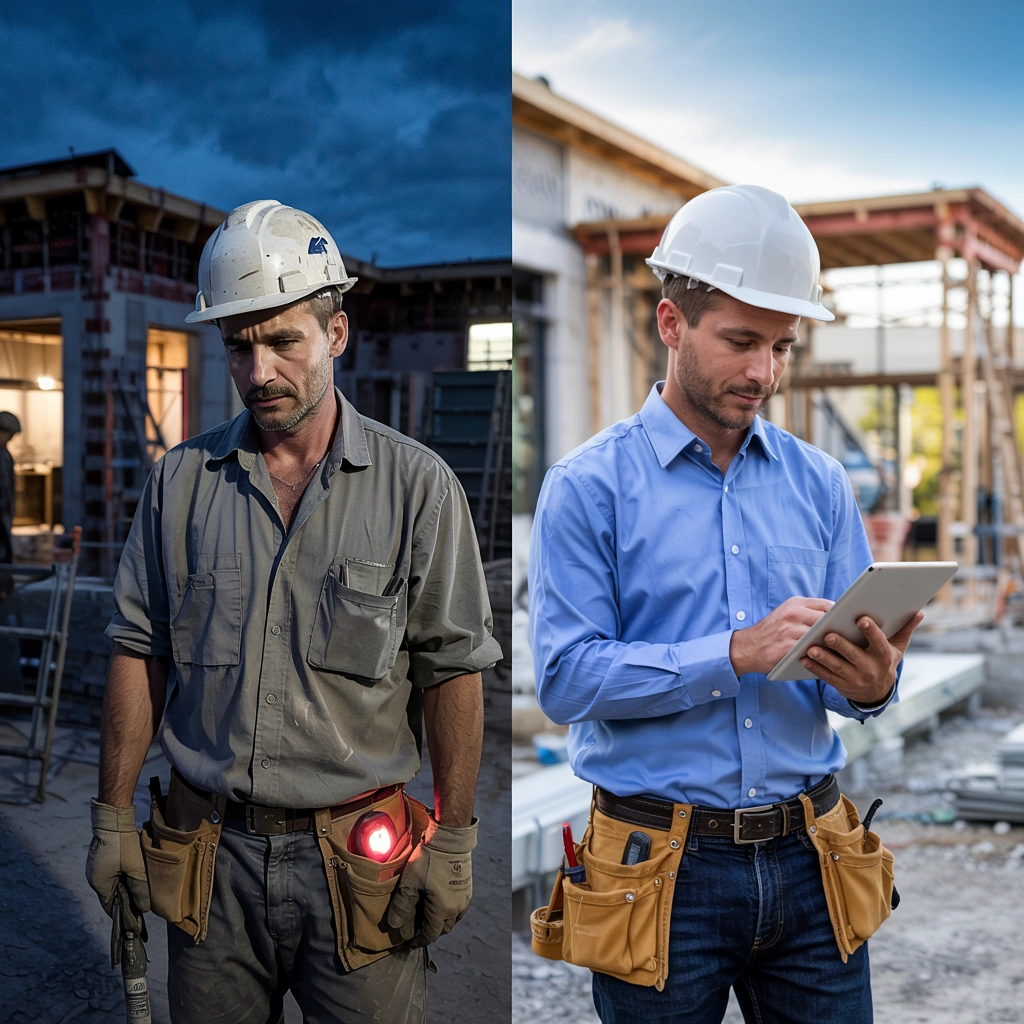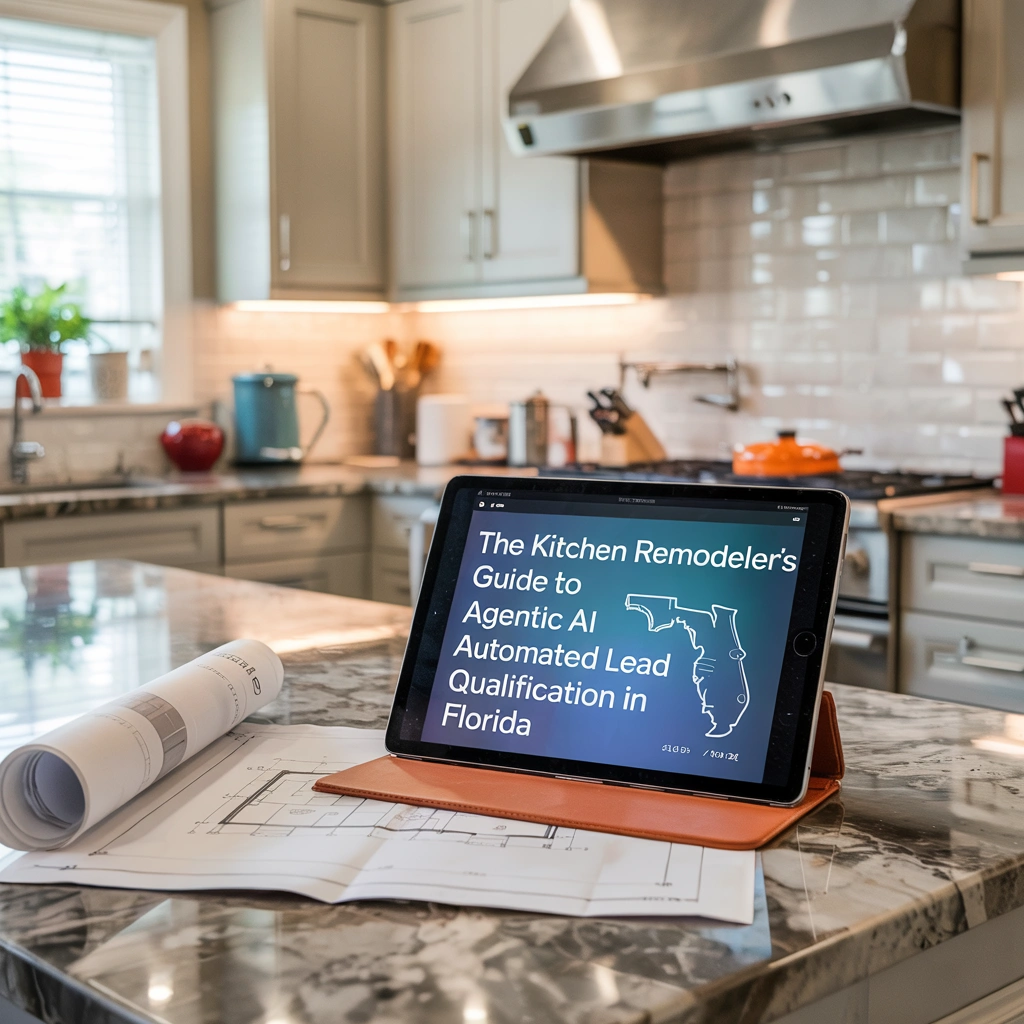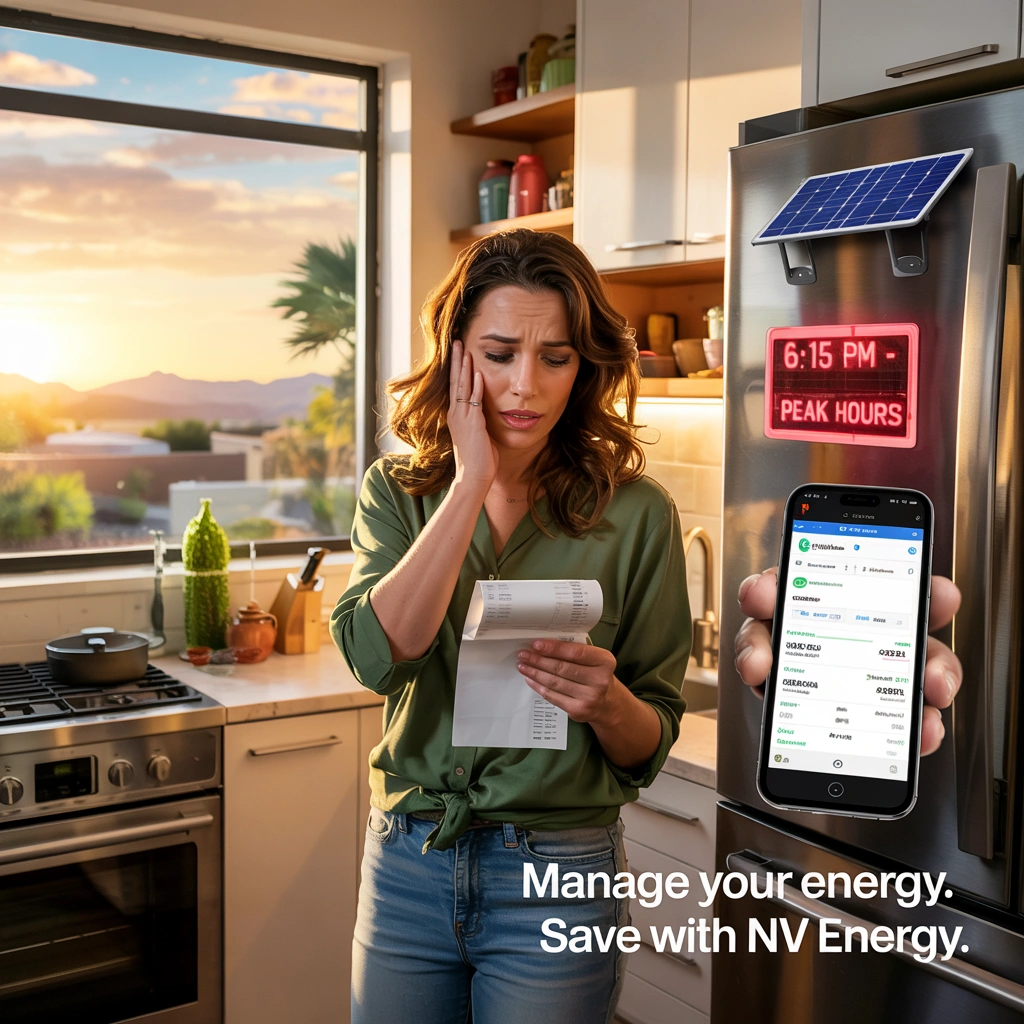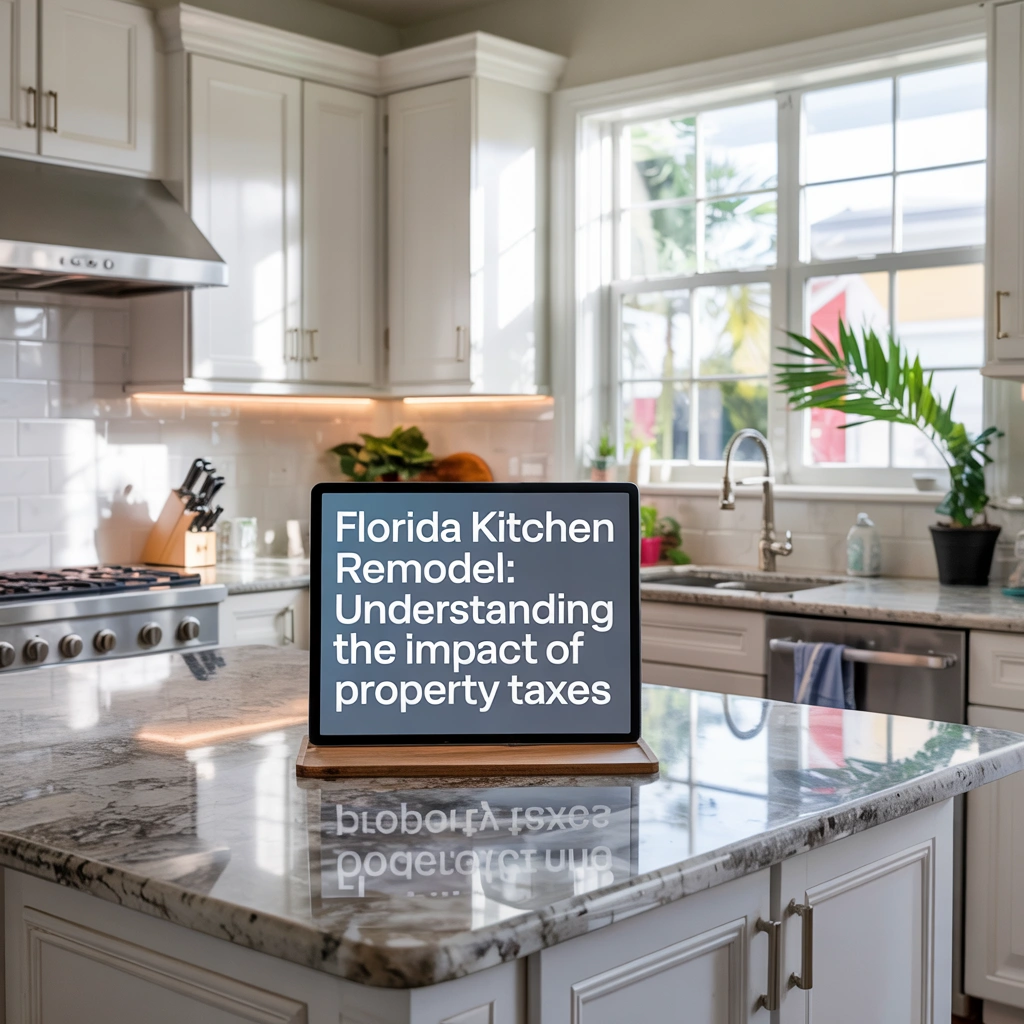
Summary: Planning a kitchen renovation in Florida? This guide reveals exactly how your project will impact your property taxes and provides proven strategies to minimize the financial surprise.
Florida homeowners face unique property tax implications when renovating kitchens due to the state’s Save Our Homes amendment. While your existing home value stays protected by a 2.9% annual cap, kitchen improvements get added to your assessed value at full market rate. A $50,000 kitchen renovation typically increases property taxes by $500-1,250 per year, but proper planning can minimize this impact while maximizing your investment value.
Key Points Covered:
- Florida’s Unique System: Save Our Homes caps existing property at 2.9% annual increases (2025), but new improvements get added at full market value
- What Triggers Tax Increases: Major renovations requiring permits (layout changes, electrical/plumbing work, high-end upgrades) vs. cosmetic updates that don’t affect taxes
- Financial Impact: Property tax increases typically range from $350-1,500 annually depending on renovation scope and local millage rates
- Mitigation Strategies: Timing renovations early in the year, phasing projects across multiple years, proper documentation
- Legal Compliance: Permit requirements and penalties for unpermitted work (50% penalty + 15% annual interest)
- Real Examples: Three renovation scenarios with actual cost and tax impact calculations
Actionable Outcomes:
- Homeowners can estimate their tax increase before starting projects
- Strategies to minimize tax impact through timing and planning
- Understanding of permit requirements and legal compliance
- Knowledge of appeal processes if assessments seem incorrect
Florida Kitchen Remodel: Understanding the Impact of Property Taxes
Planning a kitchen renovation in the Sunshine State? You’re not alone. Florida homeowners invest billions annually in home improvements, with kitchen remodels ranking among the most popular projects. However, many homeowners get caught off guard by unexpected property tax increases following their renovation.
Understanding how kitchen remodels impact property taxes in Florida can save homeowners thousands of dollars and help them make more informed renovation decisions. This comprehensive guide explains exactly what Florida homeowners need to know about property tax implications when renovating their kitchens.
How Florida Property Taxes Work
Florida operates under a unique property tax system that differs from other states. The state protects homeowners through the Save Our Homes amendment, which limits annual assessed value increases to 3% or the Consumer Price Index (CPI), whichever is lower. For 2025, this cap rate is set at 2.9%.
Your property taxes are calculated based on assessed value, not market value. This protection provides substantial tax savings for long-time homeowners. For example, if you purchased your home 10 years ago for $300,000 and it’s now worth $500,000, you might only pay taxes on an assessed value of $380,000 due to this cap.
The challenge comes when homeowners make improvements. When additions or improvements are made to homesteaded property, the value of those improvements gets added to the assessed value at full market value, regardless of the Save Our Homes cap. Your existing home value remains protected by the 3% cap, but new improvement value gets added at 100% of its appraised worth. The following year, that improvement value becomes subject to the cap.
Kitchen Remodel Property Tax Impact in Florida
Kitchen remodels that involve substantial changes, additions, or improvements must be assessed at their full market value according to Florida Statute 193.155. Complete kitchen overhauls with new layouts, adding square footage to kitchen space, installing high-end appliances and fixtures, or structural changes involving walls, plumbing, or electrical systems will typically trigger property tax increases.
High-impact upgrades like custom cabinetry installations, premium countertop materials such as granite or quartz, professional-grade appliance packages, and kitchen islands or breakfast bars also affect property values for tax purposes.
Not every kitchen update will impact property taxes. Routine repairs and cosmetic updates typically don’t increase property value for tax purposes. Painting walls and cabinets, replacing cabinet hardware, minor appliance upgrades in the same location with similar value, basic light fixture replacements, and simple flooring updates generally won’t affect your tax bill.
Florida Building Permits and Property Tax Connection
Section 105 of the Florida Building Code requires permits for most construction-related work, including kitchen renovations that involve structural, electrical, plumbing, or mechanical changes. Moving walls or creating openings, relocating plumbing or electrical lines, installing new electrical circuits, adding ventilation systems, and structural modifications all require permits.
Kitchen updates that may not require permits include replacement of existing countertops and sinks in the same location, cabinet refacing rather than replacement, painting and cosmetic finishes, and basic appliance swaps.
Florida property appraisers use several methods to identify home improvements. Building permit records are the most common way appraisers learn about renovations. County employees regularly conduct drive-by inspections, updated satellite imagery reveals exterior changes, and some improvements are self-reported by homeowners.
Strategies to Minimize Kitchen Remodel Tax Impact
Timing Your Renovation
Complete kitchen renovations early in the calendar year. Since property assessments occur on January 1st, finishing projects in January or February allows homeowners to enjoy their new kitchen for nearly a full year before the tax increase takes effect. Property tax bills typically arrive in October, with assessments made on January 1st and TRIM notices mailed in August.
Phased Renovation Approach
Breaking large kitchen projects into multiple phases across different tax years can help manage the assessed value increases more gradually. Consider completing cabinetry and countertops in year one, appliances and fixtures in year two, and flooring and final touches in year three.
Working With Your Property Appraiser
Maintain detailed records of all renovation costs, including contractor invoices and receipts, material costs and specifications, before and after photographs, and permit documentation. This information helps ensure accurate assessments and provides evidence if you need to appeal your property value.
Understanding the Financial Impact
To estimate property tax increases, multiply the renovation value by your local millage rate. Florida’s average combined millage rate ranges from 15 to 25 mills, which translates to 1.5% to 2.5% of assessed value.
Here’s an example calculation: A $50,000 kitchen renovation with a local millage rate of 20 mills (2.0%) would result in an annual tax increase of $50,000 × 0.02 = $1,000.
While property tax increases may seem concerning, kitchen renovations typically provide immediate enjoyment of improved living space, increased home value for future sale, energy savings with modern appliances, and enhanced lifestyle and functionality.
When considering luxury upgrades, homeowners should carefully evaluate the ongoing tax implications. Smart Kitchen Appliances for Florida’s Humidity: Energy-Saving Upgrades can provide excellent returns through reduced utility costs. They maintain reasonable assessed value increases. These energy-efficient investments often qualify for additional tax credits or rebates. This helps offset the property tax impact while providing long-term savings in Florida’s challenging climate conditions.
Legal Requirements and Compliance
Florida law imposes serious penalties for unpermitted work. If the Property Appraiser determines that a person was not entitled to exemptions due to unpermitted improvements, they can impose a tax lien with penalties of 50% of unpaid taxes plus 15% annual interest.
Skipping permits creates risks, including substantial financial penalties, difficulty selling your home, insurance claim denials, and safety code violations. All kitchen renovations must meet current Florida Building Code standards, regardless of permit requirements. This includes electrical safety standards, plumbing code compliance, ventilation requirements, and structural integrity standards.
Real-World Florida Kitchen Remodel Tax Scenarios
A minor kitchen update involving cabinet refacing, new countertops, and paint costing $15,000 typically requires no permits and has minimal to no property tax impact.
A mid-range kitchen renovation, including new cabinets, appliances, flooring, and lighting costing $35,000, usually requires an electrical permit for new lighting circuits and results in approximately $350-700 annually in additional property taxes with a 1-2% millage rate.
A high-end kitchen overhaul involving complete gut renovation, layout changes, and premium finishes costing $75,000 requires building, electrical, and plumbing permits and typically increases property taxes by approximately $750-1,500 annually.
Expert Tips for Florida Homeowners
Professional Planning Recommendations
Consulting multiple experts helps ensure project success. Licensed contractors provide construction planning expertise, property appraisers can estimate value impact, tax professionals help understand long-term implications, and kitchen designers optimize functionality.
Common Mistakes to Avoid
Homeowners often skip permit research, missing the opportunity to verify requirements before starting. Ignoring energy efficiency opportunities means missing out on tax credits and rebates. Poor documentation complicates future assessments, and rushing timeline decisions can increase tax impact unnecessarily.
Maximizing Your Investment
Focus on improvements that enhance daily use rather than just appearance. Choose durable materials appropriate for Florida’s climate conditions. Consider resale value in your local market, and balance luxury features with practical functionality that serves your family’s needs.
When planning renovation budgets, working with experienced professionals can make a real difference in both project outcomes and long-term value. Choosing the Right Design Professional for a High-End Kitchen Remodel in South Florida becomes particularly important for complex projects that require careful coordination of permits, timeline management, and value optimization. The right team can help navigate Florida’s unique building codes while ensuring your investment provides maximum enjoyment and return while minimizing unnecessary property tax increases.
Appealing Your Property Assessment
Florida homeowners have the right to appeal their property assessments if they believe the valuation is incorrect. Consider appealing when the assessment exceeds actual renovation costs, comparable properties show lower assessed values, errors exist in property records or improvement details, or market conditions suggest overvaluation.
The appeal process involves reviewing your TRIM notice carefully, gathering supporting documentation, filing a petition with the Value Adjustment Board, and presenting your case at a hearing with evidence and testimony.
Planning for Future Tax Years
Homestead Exemption Optimization
Ensure you’re receiving all available exemptions. The basic $25,000 homestead exemption applies to most homeowners. An additional $25,000 exemption is available for assessed values over $50,000. Senior citizen exemptions have age and income requirements, and disability exemptions are available when applicable.
Save Our Homes Portability
If you plan to move within Florida, you can transfer up to $500,000 of your Save Our Homes benefit to a new homestead property. This valuable benefit should factor into relocation decisions and can save thousands of dollars in property taxes on a new home.
Market Timing Considerations
Consider local real estate market conditions when planning major kitchen renovations. During strong seller’s markets, property values may increase faster than Save Our Homes caps, potentially minimizing the relative impact of improvement assessments.
Making Informed Kitchen Renovation Decisions
Understanding Florida’s property tax implications for kitchen remodels empowers homeowners to make better renovation decisions. While property tax increases are often inevitable with substantial improvements, proper planning can minimize their impact while maximizing investment value.
Kitchen renovations requiring permits will typically increase property taxes. The Save Our Homes cap protects existing value but not new improvements. Timing and phasing can help manage tax increases. Proper documentation is needed for accurate assessments. Professional guidance helps optimize both renovation and tax outcomes.
Action Steps for Success
Consult with your local building department about permit requirements before starting any work. Request pre-renovation assessment estimates from your property appraiser to understand potential impacts. Plan renovation timing to minimize tax consequences. Maintain detailed project documentation throughout the process. Consider working with experienced professionals familiar with Florida’s unique requirements.
While property tax increases may seem daunting, a well-planned kitchen renovation typically provides excellent returns through enhanced lifestyle, increased home value, and improved functionality. The key is understanding the implications upfront and planning accordingly.
Your dream kitchen is achievable with proper planning and realistic expectations about the associated costs, including potential property tax increases. Armed with this knowledge, homeowners can proceed confidently with renovation projects while making financially sound decisions for long-term homeownership goals.
Frequently Asked Questions
How Kitchen Remodeling Companies Can Leverage This Content
This informative article, “How To Market A Renovation Business: Tips For Florida Remodeling Contractors,” can be adapted and repurposed across multiple marketing formats to help increase website traffic for kitchen remodeling services, build trust with potential clients, and differentiate their services in a competitive market. We help with From Article to Action: Using Digital Content to Fill Your Project Pipeline by transforming technical content into powerful marketing campaigns across all digital channels, ensuring maximum reach and engagement with potential customers.
